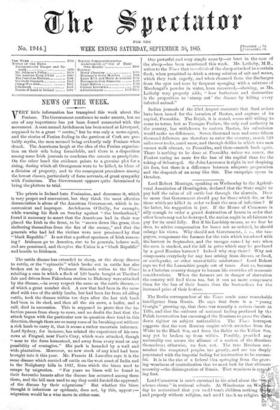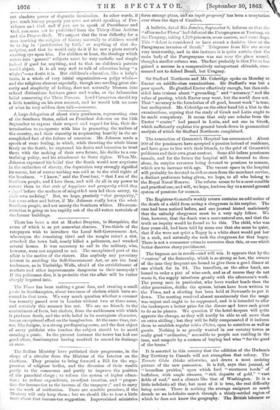Lord Carnarvon is much exercised in his mind about the
' science clause" in national schools. At Winchester on W day he maintained that you could teach children nothing and properly without religion, and could teach no religion out absolute power of dogmatic inculcation. In other words, if you teach history properly you must not avoid speaking of Pro- vidence and God, and if you are to speak of Providence and God, vou must not be prohibited from the Thirty-Nine Articles and the Prayer-Book. We suspect that the true difficulty for a man teaching the religion of history naturally to children would be to lug in justification by faith,' or anything of that de- scription, and that he would only do it if be saw a pious rector's exacting eye upon him. For children at least, the theology which enters into general' subjects must be very catholic and simple indeed if good for anything, and to that no children's parents would object. It is all very well to talk of education being " a whole ;"—no doubt it is. But children's education, like a baby's brain, is a whole of very initial organization—a pulpy whole— and the religious element especially, though one needing great sin- cerity and simplicity of feeling, does not naturally blossom into refined distinctions between grace and works, or the Athanasian belief concerning the Three Persons. Lord Carnarvon should try a little teaching on his own account, and he would talk no more of what he very seldom does talk—nonsense.































 Previous page
Previous page